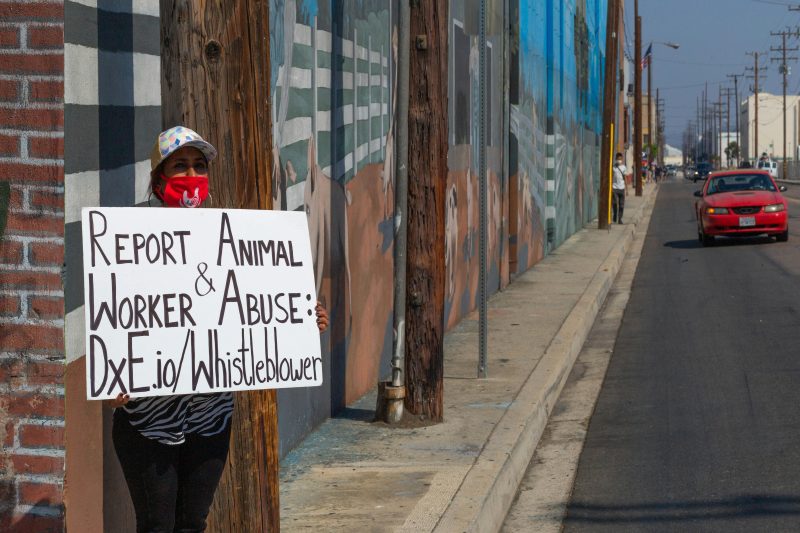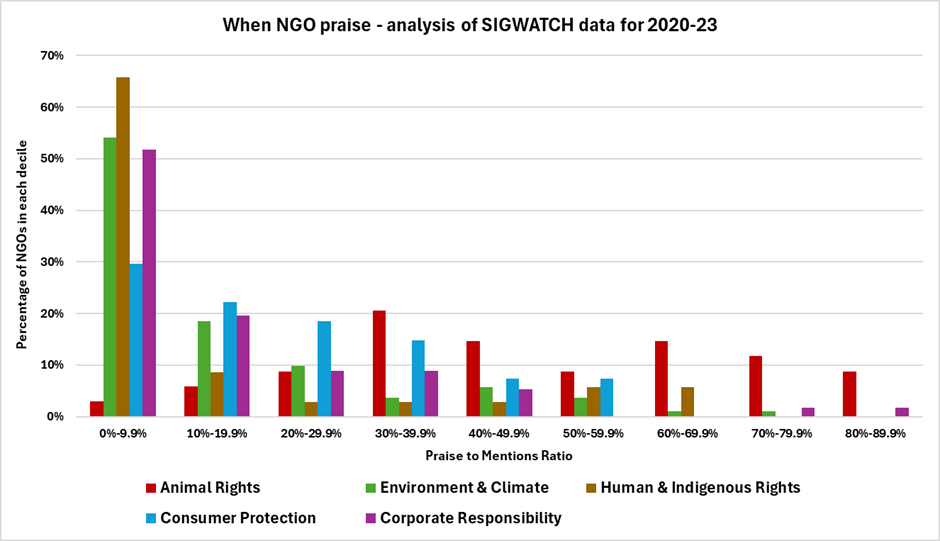
What Activists Like About Corporations

American politicians like to joke that if you want a friend in Washington, get a dog.
Whether or not this is true, our data reveals an intriguing real-life counterpart: if a corporation wants to make an NGO its friend, it should get behind animal rights.
This is because animal rights groups are three times more likely to praise a corporation than groups from any other cause.
Of the 350 NGOs that most frequently singled out corporations in their campaigning over the last four years, 50% of all corporate mentions by groups campaigning for animal rights were positive, compared to only 17% for consumer groups, and just 12% for environmental and human rights groups.

So why do animal rights groups find it easier to praise companies, and why are others so reticent?
Carrots and Sticks
To be sure, activist praise of corporates is often just ‘tactical praise’ –intended less to extoll corporations than to embarrass their competitors into changing too. Nonetheless the regularity with which animal rights groups use praise this way suggests that they believe acknowledging firms who accept their agenda really does help to progress their cause.
Big Bad Business – but it’s where the power is
As any big company knows, including firms like Unilever or Patagonia that many environmentalists openly admire, getting NGOs to praise them is hard. That big business is the butt of so much campaigning is not because it always does bad things, but because many in progressive circles, which includes most activists, perceive business as fundamentally amoral and caring only about profit. This skews NGO attitudes severely.
Pragmatic campaigners nonetheless accept that big firms, precisely because of their outsize economic power and market influence, can be a real force for good. For example, they can drive global positive change through reforms of internal practices, and through demanding higher standards in supply chains. This is why activists expend so much effort chivvying companies to acknowledge the importance of the problems they have revealed and extracting promises to change.
Click here to get in touch and understand how SIGWATCH can help your business .
Moral purity
But neither power nor pragmatism can seem to fully explain why animal rights groups find it easier to endorse companies than NGOs from other causes. One reason may be because many of their issues are morally less black and white. Animal rights groups espouse veganism and the sanctity of animal life, but in reality they are quite pragmatic, fighting for incremental improvements in animal welfare, such as ending battery cages for hens or ensuring access to pasture for cows. Human rights activists by contrast find such incrementalism hard to stomach. They are never going to praise corporations for pledging merely to reduce child labour; only abolition can be accepted.
What does this mean for my business?
The obvious message from this for multinational companies is to ensure that consumer and animal rights standards are best in class, and be ready to quickly acknowledge and meaningfully respond to emerging sector-wide controversies. This both minimises the risk of being negatively attacked, and increases the chances of being singled out for praise as a leader.
Deepening your understanding of activist issues, arguments, and motivations on issues material to your business can also help you understand their behaviour and maximise the return on your engagement. It’s frustrating when your good work sees no recognition from civil society – but an understanding of activism around the issues at hand might show that it’s not surprising.